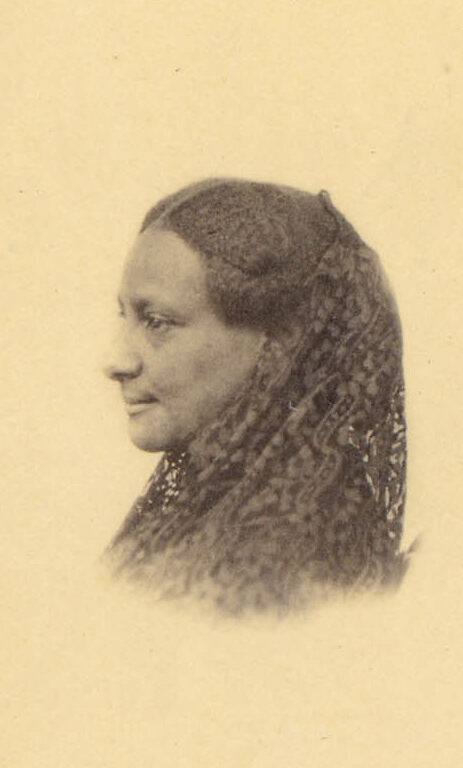February is Black History Month in the United States, which was founded by Carter G. Woodson, the son of former slaves, to celebrate the achievements of Black Americans and recognize the central role they had in shaping U.S. history. We have posted many stories of Black girlhood throughout the years, but too often, Black girlhood centers around their struggles and tragedies – rather than their achievements. This month, we’re highlighting Black girls whose stories are – instead – filled with the more positive side of empowerment. Today, we highlight 19th century activist, Sarah Parker Remond.

Born in 1826, Sarah Parker began speaking out against injustice at the age of 16. Her parents were successful caterers and hairdressers, living in the “free state” of Massachusetts. This gave Sarah the ability to become educated – though it was largely self-taught through the books, newspapers, and Anti-Slavery Society members (abolitionists) who frequented her home. Despite their theoretical status as free and equal men and women, Saran and her family faced extreme racism. As she stated in her biography,
“Our home discipline was what we needed; but it did not–could not, fit us for the scorn and contempt which met us on every hand when face to face with the world, where we met a community who hated all who were identified with an enslaved race.
[…]
“As a community, the most refined and the most vulgar treated every coloured person, so far as their personal rights were concerned, worse than criminals. In such an atmosphere, so well calculated to crush out all the finer feelings, and almost to make one despair, I grew to womanhood.
Influenced by these experiences, Sarah began speaking publicly against slavery and racism in the northeastern United States. Even during her tours, Sarah faced racism – denied entry to staying in hotels or speaking at center venues, these experiences became, as she stated, “engraved on my heart.”
Sarah extensively toured the United States and United Kingdom by the age of 22. She was surprised at the difference between the two countries, stating that,
“I have been received [in the United Kingdom] as a sister by white women for the first time in my life. I have been removed from the degradation which overhangs all persons of my complexion… I have received a sympathy I never was offered before.”
Sarah’s speeches made her remarkable. Beyond abolition, Sarah spoke of corrupt politics, the corrupt church, and – most important – the sexual exploitation of enslaved Black women. She urged the boycott of American-produced cotton and worked to build British support for the Union during the American Civil War.
After emancipation, Remond turned her attention to her education. She enrolled at Bedford College for Ladies, perhaps becoming the first Black student there. She studied for two years, continuing her lecture tours in support of recently emancipated Blacks during her school breaks. She also founded the Ladies’ London Emancipation Society.
After two years, she moved to Rome, Italy, intending to study medicine at Santa Maria Nuovo. By this time, Sarah was 42 years old. She flourished in Rome and married a painter, all while obtaining her medical degree. Sarah practiced medicine in Italy for over twenty years, dying in Florence at the age of 79.
Why Sarah left the United States so quickly after emancipation – the achievement of her numerous speeches – has never been stated in her available biographies. Perhaps after such a hard young life, Sarah felt it was time to focus on herself and her own desires – to study, to become a healer, and to find her own joys. She made significant contributions to Blacks’ and women’s rights leading up to the Civil War, having spent her youth as a mostly self-educated Black woman fighting for others.
-Tiffany R. Isselhardt
Program Developer
Further Reading
Massachusetts Historical Society image and details of several incidents of racism
“A voice for freedom: The life of Sarah Parker Remond” (University of London)
Biographical sketch for Sarah Parker Remond in Portraits of American Abolitionists (courtesy Hathitrust)
